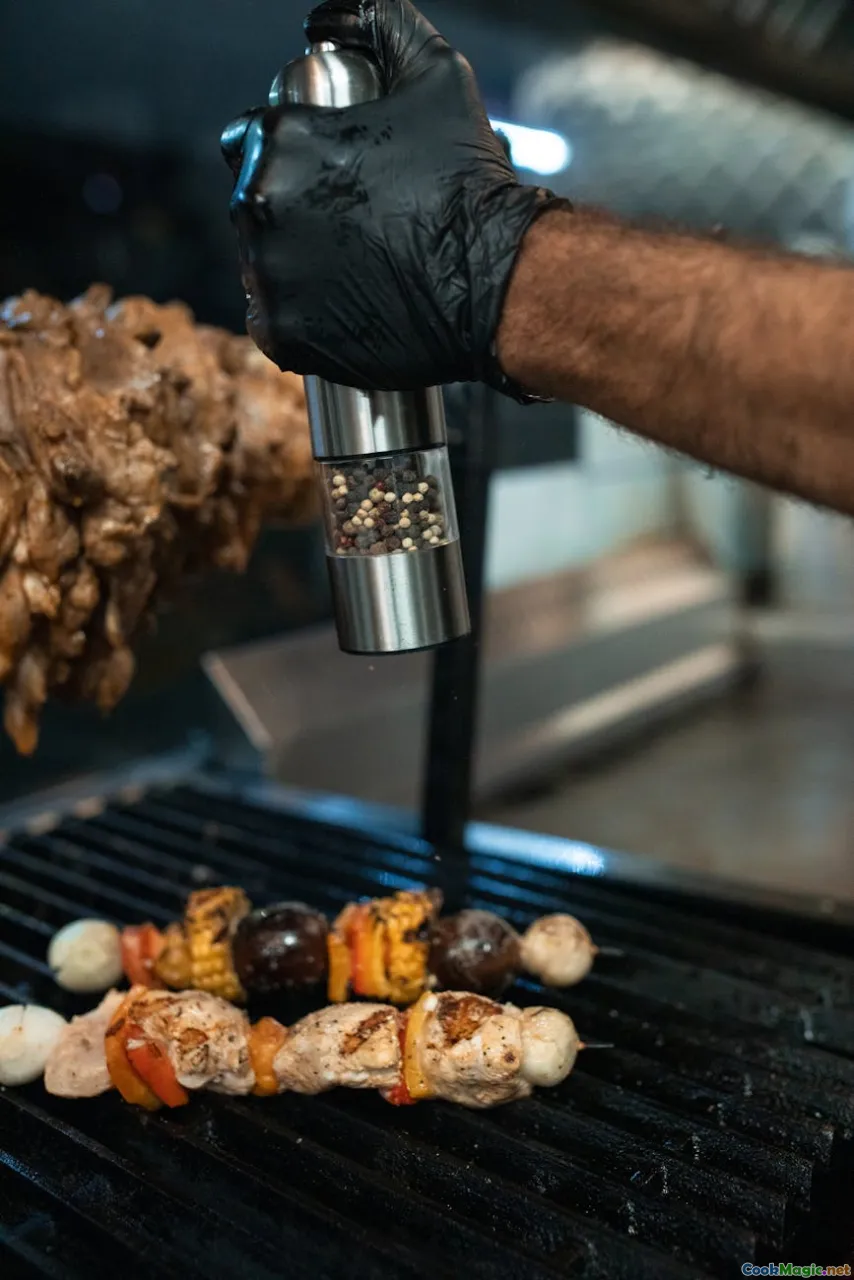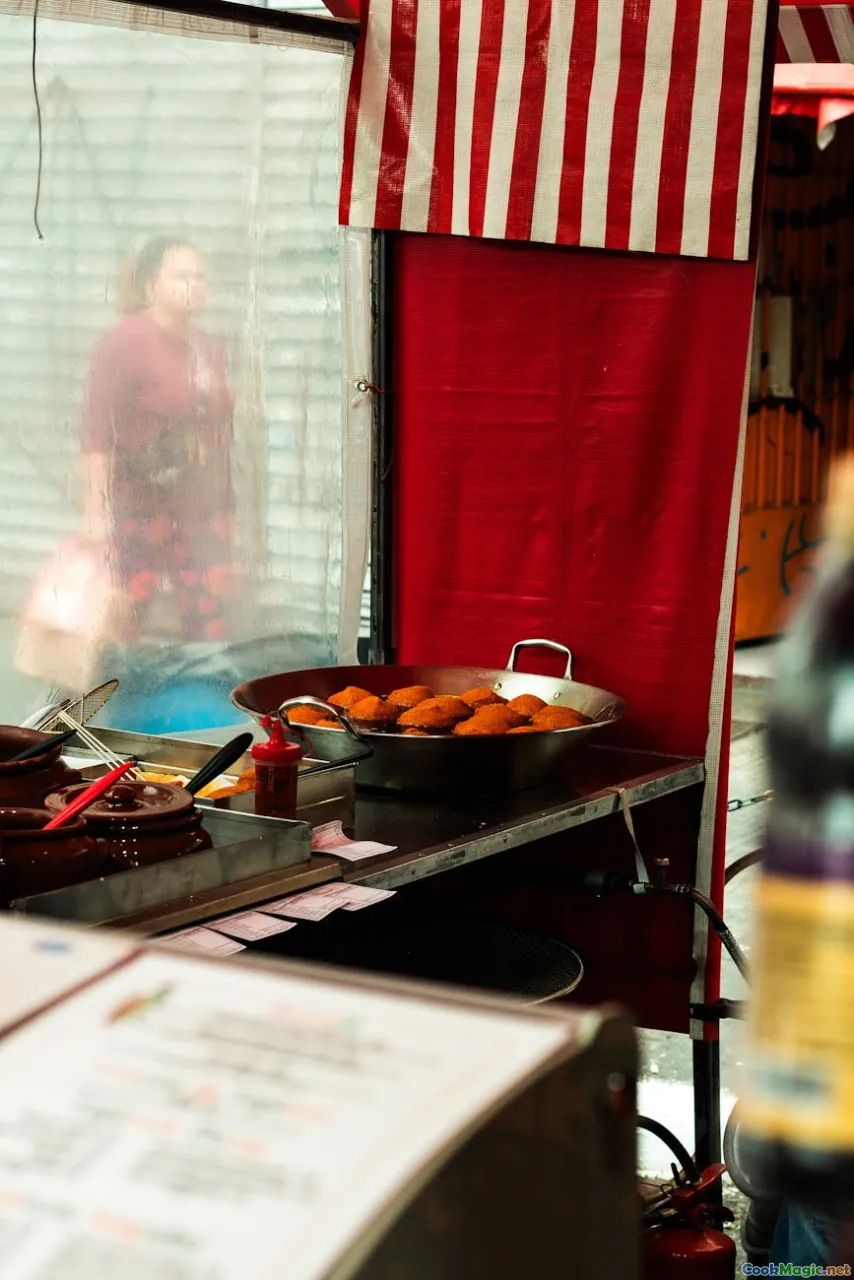How Nigerian Suya Became a Grilled Meat Staple
12 min read Exploring the cultural journey of Nigerian suya and its rise as a beloved grilled meat staple across West Africa. July 24, 2025 12:05
How Nigerian Suya Became a Grilled Meat Staple
On the bustling streets of Lagos, in the heart of African markets, and even across the world's vibrant street food scenes, there’s an aroma that commands attention—smoky, alluring, spicy. It’s the scent of suya, Nigeria’s legendary grilled meat skewers that have transcended borders to become a global street food icon. But this culinary phenomenon didn’t happen overnight. It’s a story rooted in history, culture, skill, and the unyielding love for flavor.
Join me as we explore the fascinating journey of how Nigerian suya rose from humble street corner snack to a celebrated and cherished staple across continents.
The Origins of Suya: A Cultural Fusion 
Suya’s roots trace back to the Hausa people of Northern Nigeria and neighboring regions like Niger and Cameroon. Originally, it was a simple yet bold method of preserving and flavoring meats through the artful use of spices and open-flame grilling. The term “suya” itself is believed to derive from the Hausa word "s mejor"—a style of skewered meat seasoned with a special blend of hot spices.
Historically, suya was more than just food; it was a social experience, a way for communities to gather, share stories, and celebrate special occasions. Vendors would set up makeshift stalls by the roadside, and the smell of roasting meat would beckon passersby. The traditional suya setup involved a simple charcoal grill (often called a "bifuna"), a large metal tray filled with ground peanut-spiced chili rub, and skewers of fresh meats—from beef and chicken to offals.
What made suya distinctive was its seasoning: a fiery, aromatic blend of dried ground chili, ginger, garlic, crayfish, and peanuts. The peanuts serve both as a flavor enhancer and a textural component, adding a slight crunch with each bite. Such flavors reflect the local ingredients and the resourcefulness of the Hausa chefs—turning everyday meat into an unforgettable sensory experience.
The Craft of Preparing Suya: An Art Form 
Making authentic suya is an intricate process that’s both a science and an art. It begins with selecting the best cuts of meat—lean beef, chicken thighs, or even ram—cut into thin, manageable strips or chunks.
The Spice Blend
The heart of suya lies in its spice rub. The crucial ingredients include:
- Ground Kuli Kuli peanuts or roasted peanuts – for richness and nutty flavor
- Dried chili powder or ground African pepper (evanta)
- Fresh ginger and garlic, minced
- Crushed crayfish or dried shrimp for depth
- Cayenne pepper for heat
- Salt, and sometimes palm oil for moisture and flavor
The spices are combined into a thick, aromatic paste, often mixed with a splash of oil or water to facilitate application.
The Skewering and Seasoning
For an even coating, vendors thread the meat onto thin bamboo or metal skewers. The seasoned spice paste is then generously brushed or rubbed onto the meat, ensuring each piece is coated with a fiery, fragrant layer.
Grilling on Open Flames
The skewers are laid over hot charcoal, where the magic happens. Frequent turning ensures even charring, while basting with a liquid sauce made from oil and spices can help keep the meat juicy. The smoke and heat impart a characteristic smoky, slightly caramelized crust that’s both crispy and tender inside.
Sensory Delight
The result is a burst of bold flavors—spicy heat balanced by the richness of peanuts, the smoky aroma infused into each bite, and a textural interplay between crispy exterior and juicy interior.
Suya Across Nigeria: From Local Stalls to Cultural Festivals 
In Nigeria, suya is ubiquitous—from the lively streets of Kano and Abuja to Lagos’ markets like Mile 12 and Balogun. Street vendors, dressed in vibrant fabrics and bustling with energy, serve as the custodians of this culinary tradition.
Large metal trays filled with seasoned, uncooked meat sit beside glowing charcoal fires. Customers call out their orders, often requesting the spiciest or garriest suya—proof of their palate’s craving for complexity.
Special occasions like Eid, Independence Day, or local festivals transform suya into more than a snack; it becomes a communal feast. Vendors set up stalls with colorful umbrellas, and the air is thick with the scent of roasting meat, fried yaji (spice mix), and grilled vegetables.
Regional Variations
While the core concept remains the same, regional twists exist. In the east, you might find suya paired with spicy groundnuts or served with local hot pepper sauces. The west may incorporate more onion or different cuts of meat.
The Global Rise of Nigerian Suya 
The international appeal of suya can be traced to Nigeria's diaspora and the globalized street food movement—more travelers and food enthusiasts seeking authentic flavors.
In London’s Borough Market or New York City’s Queens street food fairs, vendors proudly serve steaming skewers drizzled with spicy sauces, often with a side of cool cabbage slaw or cooling yogurt-based dips. These adaptations preserve the essence while making it more accessible across different palates.
Food bloggers, celebrity chefs, and culinary festivals now feature Nigerian suya, often highlighting its rich history and bold flavors. Social media posts flood feeds with mouthwatering images of charred, spicy skewers—their appeal undeniable.
Techniques for Making Suya at Home: Tips from the Experts 
While authentic suya is best made over charcoal, savvy home cooks can approximate the flavor with some tips:
- Choose quality meat: Thin cuts allow for better seasoning absorption.
- Create a robust spice mix: Don’t shy away from boldly spicy ingredients like dried chili flakes combined with toasted ground peanuts.
- Marinate: Let the meat sit in the spice paste for at least 30 minutes, or overnight for more flavor.
- Use a hot grill: Whether charcoal or gas, high heat is essential for that distinctive charring.
- Turn frequently: Ensures even cooking and prevents burning.
- Add a twist: Try brushing with palm oil or adding a squeeze of lime for extra flavor.
The Emotional Connection: More Than Just Food 
Suya isn’t just about taste—it's about community, identity, and celebration. It represents the warmth of Nigerian hospitality and the joy of shared experiences. Watching a vendor expertly flip skewers over open flame, inhaling the intoxicating aroma, and tasting that first smoky, spicy bite—that’s a moment of cultural pride.
Many Nigerian families pass down suya recipes through generations, and it often becomes the centerpiece during gatherings and special occasions, creating memories associated with flavors and fellowship.
The Future of Suya: Preserving a Tradition While Innovating 
As Nigerian cuisine gains recognition worldwide, suya has evolved beyond traditional street settings. Food trucks, cafes, and even upscale restaurants tease the balance between authenticity and innovation—adding cheeses, marinades, or international spices.
Nevertheless, its heart remains rooted in community and tradition. The challenge for entrepreneurs and chefs is to preserve the authentic smoky, spicy essence while adapting to modern tastes.
Final Thoughts: An Ongoing Celebration of Flavors 
Nigerian suya embodies the vibrant spirit of African street food—a showcase of history, skill, and communal bonding within a single skewer. Its journey from a modest street-side snack to a global culinary treasure underscores how food can transcend borders, connecting people through shared flavors and stories.
So next time you bite into that smoky, spicy, crunchy masterpiece, remember—you’re tasting a piece of Nigeria’s rich heritage, redefined through the timeless art of grilling.
Let suya be a reminder that great food is not just sustenance but an experience that unites, celebrates, and invites the world to savor the irresistible allure of tradition.

















